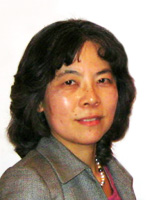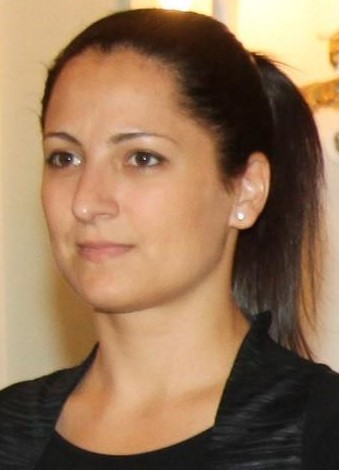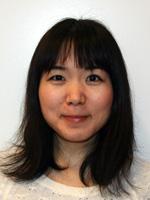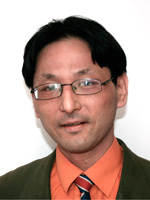Japanese Studies
 |
Dr. Yuko UMEMURAAssociate Professor, Head of Department of Japanese Studies E-mail: umemura.yuko@btk.elte.hu
Yuko Umemura has been active in education and training at ELTE Faculty of Humanities since 1999. She obtained her doctoral degree in 2004. At first she was a lecturer at the Department of Japanese Studies, later she was appointed scientific associate and became a tenured associate professor in 2006. Author, editor and translator of several academic books, she regularly participates in conferences in her subject of interest. In addition to her academic activities her articles have been published in both Hungarian and Japanese written media as well. Her special field is the history of Japanese-Hungarian relations. She has taught Country Knowledge of Japan and History of Japanese Literature at basic level but she has also been lecturing on History of Relation between Japan and Hungary and Context Analysis in master’s and doctoral programs respectively. As a research fellow of Tokyo University of Foreign Studies under the auspices of the Japan Foundation she was active in 2012 and 2013. She concluded the habilitation process in History at ELTE Faculty of Humanities in 2015.
Main publications:
|
 |
Dr. Balázs SZABÓSenior Assistant Professor E-mail: szabo.balazs@btk.elte.hu
Studied at the Department of Japanese Studies, ELTE from 1992 to 1997, PhD School of Language Sciences, Japanese philology program from 2007 to 2010. Obtained his PhD degree in 2011. 1998-2007 lecturer at Gate of Dharma Buddhist College, 2008-2010 part-time lecturer at Department of Japanese Studies, ELTE, 2010-2012 full-time lecturer, from 2012 assistant professor, deputy head of Department. His main research field is Muromachi and Edo era Japanese history, pre-modern history of thought, focusing on written materials and philosophy of martial arts schools. At BA level teaches Japanese history and classical Japanese language, at MA level classical Japanese texts, kanbun and historical research, supervisor at the PhD program. Main publications: • Test és tudat. A japán harcművészeti filozófia hajnala [Body and Mind. The Dawn of the Japanese Philosophy of Martial Arts], Torii, Budapest, 2017.
|
 |
Dr. Melinda PAPP (PAPPOVA)E-mail: papp.melinda@btk.elte.hu
Melinda Papp graduated in Japanese Studies from Charles University, Faculty of Humanities, Prague, in 1996. She was awarded the Japanese government scholarship for undergraduate study program at Hokkaido University, Japan, between 1994 and 1995. In 1996-1998 she studied as a research student at Hirosaki University (Japan) conducting research on identity issues in the Tsugaru region. After living and working abroad for several years, in 2012 she completed her Ph.D. studies at Charles University. The title of her dissertation is ‘Change and continuity in a Japanese rite of passage: the case of Shichigosan’. In 2010, she was invited by the EAJS (European Association for Japanese Studies) to its PhD Workshop at Cambridge University (UK). Between 2009 and 2011 she acted as tutor of the course in Anthropology of East Asian countries at Bergamo University (Italy). Since 2011, she has worked as a lecturer at ELTE, Institute of Far East Studies, Department of Japanese Studies. She teaches courses on modern and traditional Japanese society, readings in Japanese culture, MA courses in Japanese folklore and anthropology. Her research interests cover: rural and urban society, family structure, folklore, folk beliefs, changes in ritual culture, and religious consciousness.
Main publications:
|

|
Dr. Judit Éva ZENTAISenior Lecturer
E-mail: zentai.judit@btk.elte.hu
Judit Éva Zentai obtained her Master’s degree in the field of Japanese Studies from ELTE University in 2006. She obtained her Ph.D. in Japanese philology from the Doctoral School of Linguistics, Japanese Philology Program at ELTE University in 2014, which focused on Japanese medical treatment in the Edo period based on Kaibara Ekiken’s Yojokun. Her field of studies covers the thoughts of Kaibara Ekiken about remedies and nourishing life and the history of Japanese medicine and anatomy during the Edo period. Currently she is a lecturer at the Department of Japanese Studies, Institute of East Asian Studies at ELTE University and mainly teaches BA courses in classical and modern Japanese language, and MA courses in Japanese linguistics and history of Japanese diplomacy.
Main publications:
|
Dr. Ferenc TAKÓAssistant Lecturer
E-mail: tako.ferenc@btk.elte.hu
Ferenc Takó took Japanese studies at Eötvös Loránd University from 2007 to 2010 with a special interest in the reception of Chinese thought in Japan. Being interested in the reception of Chinese thought in Europe he started doing research in this field as well, obtaining a master’s degree in 2013, with a thesis on the German philosophical interpretations of Chinese thought. Between 2013 and 2016 he continued this work as a PhD student of the Doctoral School of Philosophy (Programme for Moral and Political Philosophy) at Eötvös Loránd University, doing research on Max Weber’s interpretation of Chinese thought, earning a PhD degree in 2017 (summa cum laude). Since 2013 he has also been a student of the Doctoral School of Linguistics (Programme for Japanese Philology), investigating Maruyama Masao’s writings on intellectual history and contemporary politics with a special focus on Hegelian influences in his thought. He has also been the organizer of the yearly student conference for Oriental studies, “Near and Far” since 2009.
Main publications:
|
 |
Kazumi UCHIKAWALanguage Teacher
E-mail: uchikawa.kazumi@btk.elte.hu, kazumi812@gmail.com
Kazumi Uchikawa graduated from the Hungarian Department at Osaka University of Foreign Studies (now Osaka University Department of Foreign Studies). He has been a lecturer at the language courses of the Japan Foundation Budapest Office since 2005, and a Native language Instructor of the ELTE Department of Japanese Studies since 2006. Since 2006 several volumes of Hungarian children's literature have been published in Japan, translated by her. Among her translations one was awarded the prize of the Japanese Ministry of Health, Labour and Welfare, others received the recommendations of the Japan Library Association and the Japanese School Library Association. Her research field is the methodology of Japanese language teaching and Japanese and Hungarian children's literature.
Main publications:
|
 |
Hisayoshi ONOLanguage Teacher E-mail: ono@caesar.elte.hu
Hisayoshi ONO studied at Taisho University and obtained his MA in Literature in 1998.The main subjects there were Japanese folklore, the study of religions and social anthropology. He then studied Japanese Applied Linguistics at SOAS, University of London and obtained his MA in Applied Japanese Linguistics in 2002. He taught Japanese as language lecturer at the University of Latvia from 2004 to 2006. While teaching at the University of Latvia, he also taught Japanese at Riga Culture school, which is a state school for primary and secondary education from 2004 to 2005, and was Chair of the Japanese Teachers Association in Latvia from 2004 to 2006. He moved to Hungary in 2006 and started to teach at the Japan Foundation Budapest Office as a part time language instructor. He has taught at ELTE as a native language instructor since 2009. |

